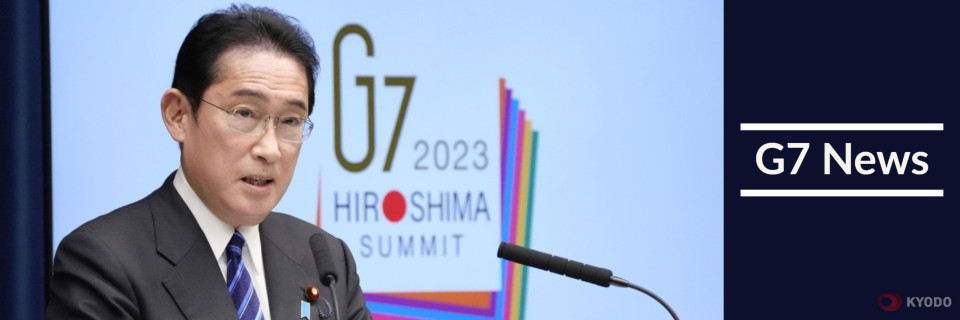Science chiefs of the Group of Seven nations kicked off a two-day meeting Friday in Sendai with the goal of ensuring the benefits of scientific research are shared globally while national and economic security is protected.
The G-7 -- Britain, Canada, France, Germany, Italy, Japan and the United States, plus the European Union -- are expected to adopt a ministers' communique Saturday in the northeastern Japan city, in which they will agree to reinforce international cooperation in the field of research and development.
In the run-up to the G-7 summit starting next week in the western Japan city of Hiroshima, the ministers are expected to introduce best practices by countries that can share research outcomes and safeguard critical information and technology, which can be diverted to military use.

While it is unclear whether the science and technology chiefs will single out any country of concern, their intent to consider limits or conditions on access to research is believed to have countries like China in mind.
Last year, the ministers opposed practices by "some bad-faith actors" who may not respect justified limits and seek to access and misappropriate knowledge and technology without authorization.
The G-7 science ministers' communique released in June 2022 strongly condemned Russia's invasion of Ukraine, calling it an assault on the fundamental principles of freedom, democracy and self-determination, which provide the basis for academic freedom and scientific exchange and cooperation.
Sanae Takaichi, minister in charge of science and technology policy, said at the outset of the ministerial meeting she chairs that it is a great opportunity for them to deepen knowledge on each country's science and technology policies and further boost G-7 cooperation in this area.

This year's conference has the issue of utilizing space on the agenda, as cooperation in the field becomes increasingly vital amid a new era of space exploration.
Cooperation on space activities is also closely linked to finding innovative solutions to mitigate climate change, the destruction of ecosystems and large-scale natural disasters, Japanese government officials said.
The G-7 science chiefs will debate how to effectively reduce space debris, which poses collision risks for satellites and astronauts, the officials said.
Falling space debris, including recent incidents involving Chinese rockets, has been a major menace lately.
Topics on Friday's agenda included two of the three main issues of the meeting -- freedom of research and the promotion of open science -- as well as the importance of research integrity and security, according to the officials.
They will then focus on international scientific and technological cooperation to solve global challenges, including climate change and the utilization of space, and promote efforts to further understand ocean ecosystems on Saturday.











